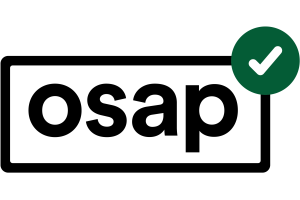Ontario Student Assistance Program (OSAP) and the Recent Changes You Need To Know About
Earlier this year, the Ontario Government announced that it would be making changes to the Ontario Student Assistance Program (OSAP). OSAP is a student support program that offers a mixture of grants and loans to students pursuing post-secondary education in Ontario.

In the chart below, we have done our best to break down the important changes that have been made to OSAP for the 2019-2020 school year that all students or prospective students should be aware of.
|
Topic
|
Prior to the 2019-2020 School Year
|
2019-2020 School Year
|
| New Definition of "Independent Student" |
Students were considered "independent" if they have been out of high school for four years or more. |
Students will now be considered "independent" if they have been out of high school for six years or more. This means parents' salaries will be factored into the amount of OSAP the student receives for a longer period of time. |
| Free Tuition Program for Low-Income Students |
The free tuition program provided students of low-income families who made less than $50,000 annually free tuition in the form of grants. |
The free tuition program has been eliminated. |
| Other Funding for Low-Income Students |
69% of the total share of funding went to low-income students. |
72% of the total share of funding will go to low-income students. |
|
OSAP Grants
(Money students do not have to pay back)
|
76% of grants went to students with a family income of less than $50,000.
Grants were double the amount of what students will receive after the changes in 2019-2020. |
82% of grants will go to students with a family income of less than $50,000.
Grants have been cut down to half the amount given prior to the changes. |
| OSAP Loans |
Previously, it was possible for students to receive more in grants than in loans.
Funding was double what individuals will receive after the changes in 2019-2020. |
Now, at least half of the funding students receive through OSAP will be made up of loans.
Funds given through OSAP have been reduced to almost half of the funds given prior to the changes. |
| Interest-Free Grace Period |
Previously, Ontario students had a six-month grace period following the completion of their studies where the Ontario portion of their OSAP loan would not accumulate interest. However, the Canadian portion of their loan would begin accumulating interest as soon as they graduated. |
Now, Ontario students will not receive a grace period and will begin accumulating interest on both the Ontario and Canadian portions of their loan as soon as they graduate. |
| Monthly OSAP Loan Payments |
Ontario students were not required to make monthly loan payments until six months after graduation. |
Ontario students are still given a six-month grace period before they are required to begin making monthly loan payments. However, interest will begin accumulating on these loans immediately after graduation. |
Generally, reactions to these OSAP changes have been negative due to the cuts in funding and the immediate impact it is having on current students as well as the overall impact it could have on society. Some of the comments include:
- "Ryerson student thought she was going to get more money this year than last year, since her father hasn't been working and she's moving downtown. Instead, her Ontario Student Assistance Plan (OSAP) funding was slashed in half, from about $7,200 in loans and grants, to $4,200, but all in loans." (Nanowski, June 22, 2019)
- "It's going to be disproportionately affecting people of colour, people who come from families of lower income, that's usually people of colour, [and] minority groups. At the end of the day I just feel like it's systematic discrimination. It's not going to further equality." (Laucius, June 24, 2019)
- "While these numbers may seem to suggest increased prioritization of low-income students, they only reflect a change in proportion rather than in actual loan and grant amounts. While more loan funding will be available to low-income students, the grants they will receive will decrease." (Al Mallees, Feb. 16, 2019)
|
|
|
